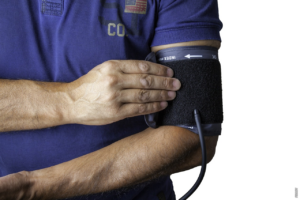The Marvels of Sweat Glands
Sweat glands are the unsung heroes of our bodies, working tirelessly to keep us cool and comfortable. These tiny, often overlooked organs play a vital role in regulating body temperature and eliminating toxins. Join us on a fascinating journey as we explore the inner workings of sweat glands and uncover the secrets of their remarkable functionality.
The Anatomy of Sweat Glands
Located in the dermis layer of the skin, sweat glands are categorized into two types: eccrine and apocrine. Eccrine glands are found throughout the body and primarily regulate body temperature, while apocrine glands are concentrated in areas like the armpits and groin and are responsible for producing odor.
The Sweating Process
When the body heats up due to physical activity or rising temperatures, eccrine sweat glands swing into action. These glands are connected to the surface of the skin through ducts, and when stimulated, they release sweat onto the skin’s surface. As sweat evaporates, it cools the body, providing much-needed relief.
The Composition of Sweat
Sweat is predominantly made up of water, but it also contains electrolytes like sodium, chloride, and potassium. These minerals are essential for maintaining the body’s fluid balance and aiding in nerve and muscle function. Additionally, sweat can contain trace amounts of toxins, such as urea and ammonia, which are excreted from the body through the sweat glands.
The Fascinating Regulation Mechanism
The regulation of sweat glands is an intricate process controlled by the autonomic nervous system. When body temperature rises, specialized cells in the hypothalamus detect the change and send signals to the sweat glands to start producing sweat. This mechanism ensures that our bodies stay within a narrow temperature range, preventing overheating.
Post
Post
Sweat Glands and Emotional Response
Interestingly, sweat glands also play a role in emotional sweating. When we experience intense emotions like fear, anxiety, or excitement, the sympathetic nervous system activates the sweat glands, causing us to perspire. This phenomenon is responsible for the familiar sweaty palms before a nerve-wracking event.
The Curious Case of Body Odor
Although sweat itself is odorless, the distinctive smell associated with perspiration arises when bacteria on the skin break down the organic compounds in sweat. Apocrine glands, which are concentrated in areas with dense hair follicles, produce sweat with a higher protein content, providing the perfect feast for these bacteria. This interaction produces the characteristic body odor we are all familiar with.
Cooling Mechanisms in Other Animals
Sweating is not exclusive to humans. Many other animals have developed unique cooling mechanisms to survive in hot climates. For example, elephants cool down by flapping their ears, which increases the surface area for heat dissipation. Dogs, on the other hand, rely on panting to regulate their body temperature. These adaptations showcase the incredible diversity of nature’s solutions to temperature regulation.
Conclusion
Sweat glands are truly remarkable organs that deserve our appreciation. Their ability to cool the body and facilitate toxin elimination is a testament to the intricacies of human physiology. So, next time you break a sweat, take a moment to marvel at the wonders happening beneath your skin.



